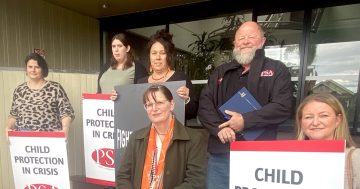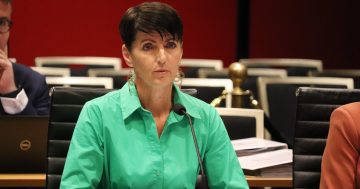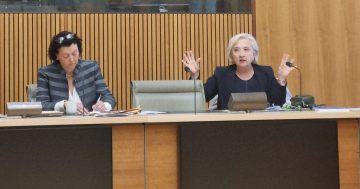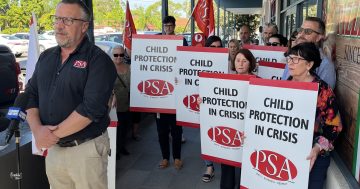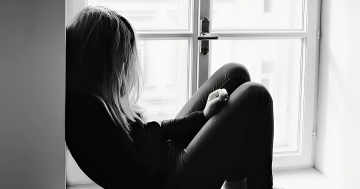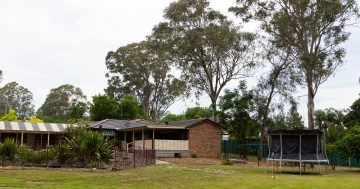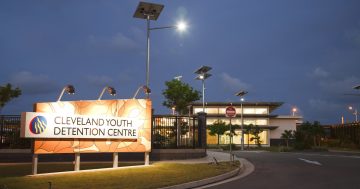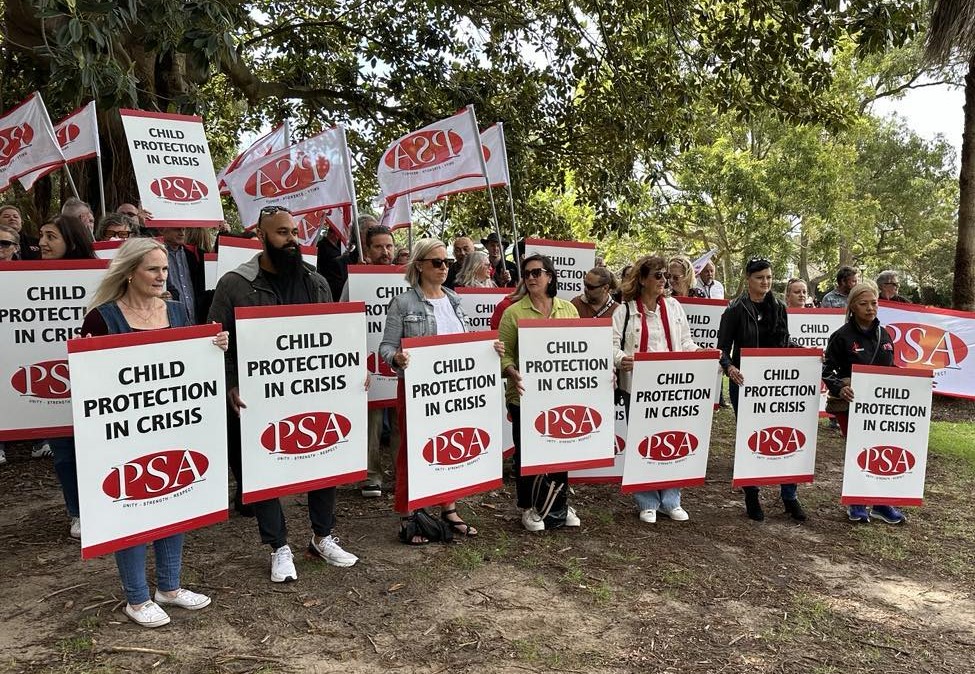
Child Protection caseworkers gathered outside NSW Parliament for the statewide campaign’s launch in April. Photo: NSW PSA.
Following a month-long campaign by NSW caseworkers, the state’s Auditor-General has found the child protection system is “inefficient, ineffective and unsustainable”.
Recently the Audit Office of NSW released two reports on the Department of Communities and Justice’s (DCJ) management of the Child Protection System (CPS). DCJ provides early intervention, prevention and out of home care (OOHC) services and also subcontracts non-government organisations to provide these services.
The reports found that “despite recommendations from numerous reviews”, the most vulnerable children in NSW – disproportionately from Indigenous backgrounds (45 per cent as at June 2023) – are subject to a “crisis driven” model.
According to one of the reports, rather than proactively supporting families at their earliest point of contact with the CPS, the DCJ waits until families are in crisis – such that children are more likely to be removed from their parents.
Due to this model granting families “limited access to restoration services”, the number of children being returned to their parents from OOHC has declined since 2018-19, one of the reports claimed.
In one report, Auditor-General Bola Oyetunji wrote “the DCJ has failed to establish safe, nurturing, stable and secure accommodation for children in these environments”.
The Public Service Association (PSA), which organised the NSW caseworkers’ campaign, said the report confirmed everything its members in child protection had known for years.
“Privatisation of services in the past decade means DCJ no longer monitors the wellbeing of children in Out of Home Care (OOHC),” wrote the union in a statement. “This means it doesn’t have the information needed to meet its legislative responsibility to ensure children ‘receive such care and protection as is necessary for their safety, welfare and wellbeing.'”
The Auditor-General’s first report on oversight of the CPS – assessing the performance of five private providers of OOHC – found the DCJ has limited evidence to inform investments in family support services due to a lack of data about the therapeutic service needs of children and families.
It also found the DCJ has more than 30 child protection governance committees with no clarity over how decisions are made or communicated, and no clarity about which part of DCJ is responsible for leading system improvement.
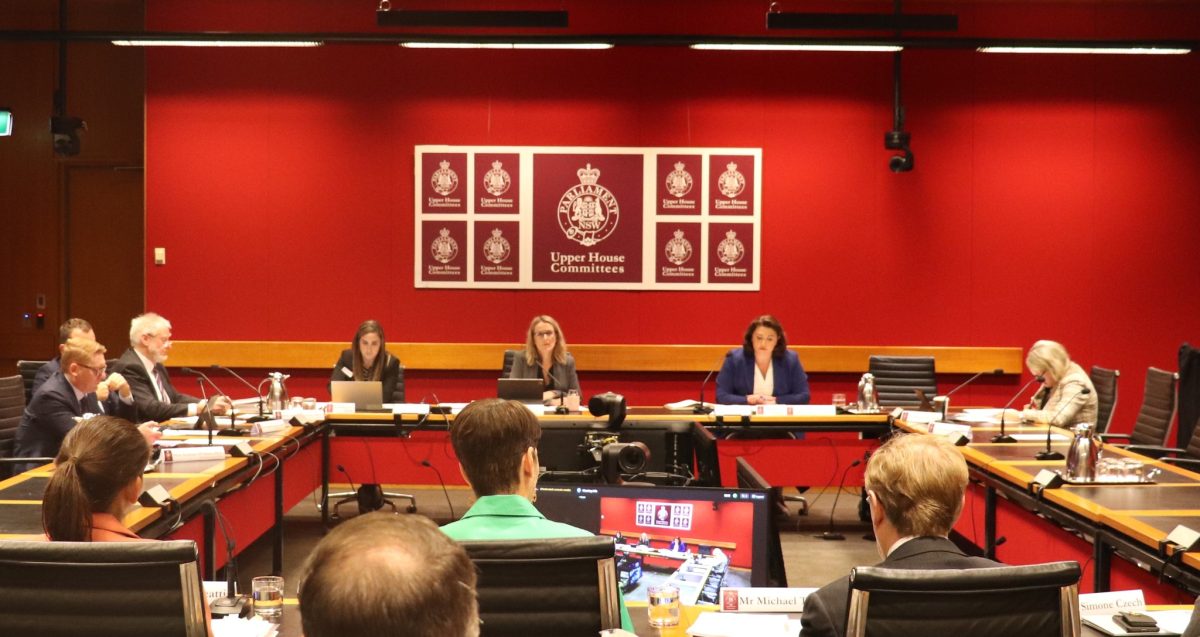
Region broke a story in March on how a two-year-old foster care baby and their four-year-old sibling were kept in hotel-style accommodation for 163 days. The PSA knows of one child who cost taxpayers $1.2 million to be put up in hotels and motels. Photo: NSW Legislative Assembly.
The report claims DCJ’s assessments of child protection reports are labour intensive, repetitive and reducing the time caseworkers have to support families with services. Due to this workload, the PSA claims child protection caseworkers are leaving in droves with one in two leaving in the first two years of being in the industry.
The PSA said privatisation was also what led to the report’s finding that 471 children were living in costly and damaging environments, such as hotels and motels, for months or years at a time at a cost of $300 million per annum – “rather than with foster parents or in group homes as was the system before privatisation”.
The PSA said OOHC providers needed to be completely removed from the child protection system as “they are getting in the way of child protection caseworkers looking after kids, yet actually cost the taxpayer more than the old system”.
Auditor-General Bola Oyetunji made 11 recommendations in the oversight report, and four in the report on safeguarding the rights of Aboriginal children when they encounter the CPS.
The latter report similarly found that DCJ has not lived up to the Aboriginal and Torres Strait Islander Principles (rights), which are set out in legislation.
It found insufficient governance and accountability arrangements have contributed to DCJ’s failure to deliver on Aboriginal strategies and reforms in the past five years, meaning:
- DCJ has not developed holistic family preservation models based on Aboriginal ways of healing
- DCJ is aware yet continues to use its structured decision-making tools that adversely affect Aboriginal children and their families
- DCJ has no quality assurance mechanisms over its child protection system and casework practice
- As system steward, DCJ has not provided OOHC providers with means to satisfy the principles.
In its response to both reports, the DCJ accepted or supported all recommendations “noting there are resource and timeframe implications for many of the recommendations that will need to be considered by government”.


